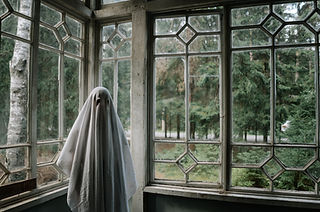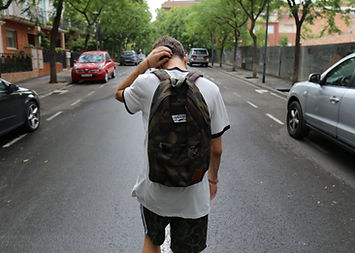Reading & Writing Units
WHAT ARE WE LEARNING THIS YEAR?
UNIT 1
HMH Into Literature
"Gadgets and Glitches"

Topic: Technology and Social media
Essential Question: Does technology improve or control our lives?
HMH into literature Grade 8 "Gadgets & Glitches" is about Technology and social media students will read a variety of texts on the topic that include:
"The Brave Little Toaster" by Cory Doctorow
"Are Superhumans on the Horizon?" by Ramez Naam
"Interflora" by Susan Hamlyn
"Automation Paradox" by James Bessen
"Heads up, Humans" by Claudia Alarcon
Students will produce an argumentative writing piece at the end of the unit referencing all from all the texts above as sources.
UNIT 2
HMH Into Literature
"Thrill of Horror"



Topic: Exploring the Horror Genre
Essential Question: Why do we sometimes like to feel frightened?
HMH into literature Grade 8 "Thrill of Horror" is about horror stories that examine why the genre terrifies and fascinates. Students will read, write, and discuss texts that can be both horrifying and enjoyable.
Students will read a variety of texts on the genre that include:
"What is the Horror Genre?" by Sharon A. Russell
"The Tell Tale Heart" by Edgar Allan Poe
"The Monkey's Paw" by W.W. Jacobs
"From Aeneid of Virgil" by Allen Mandelbaum
"From Hades Lord of the Dead" by George O'Connor
Writing
Students will produce a Literary Criticism on the horror genre.
🔎 Skills & Focus Areas
-
📝 Summarizing
-
📚 Analyzing literary criticism
-
👁️ Analyzing point of view
-
🔦 Analyzing suspense
-
🎭 Analyzing themes
-
🌒 Analyzing foreshadowing
-
👤 Analyzing perspective
-
🎨 Analyzing mood

UNIT 5
HMH Into Literature
Finding your Path
Topic: World War II & The Holocaust
Essential Question: What can we learn from tragic events?
The Diary of Anne Frank by Frances Goodrich and Albert Hackett
Excerpts from The Diary of a Young Girl by Anne Frank
After Auschwitz by Elie Wiesel
There but for the Grace (poem) by Wisława Szymborska
Days (poem) by Billy Collins
Students will produce a comparative essay


Topic: Milestones, Maturing, Growing Up, Coming of Age
Essential Question: How do the challenges you face today help to shape your future?
Bronx Masquerade (novel) by Nikki Grimes
The Debt We Owe to the Adolescent Brain (informational text) by G. Ann Miller
Hanging Fire (poem) by Audre Lorde
Summer of His 14th Year (poem) by Gloria AmescuaIt
Complicated: The Social Lives of Networked Teens (argument) by Danah Boyd
Outsmart Your Smartphone (argument) by Catherine Steiner Adair
Students will be producing a research report.
UNIT 6
HMH Into Literature
the Legacy of Anne Frank
